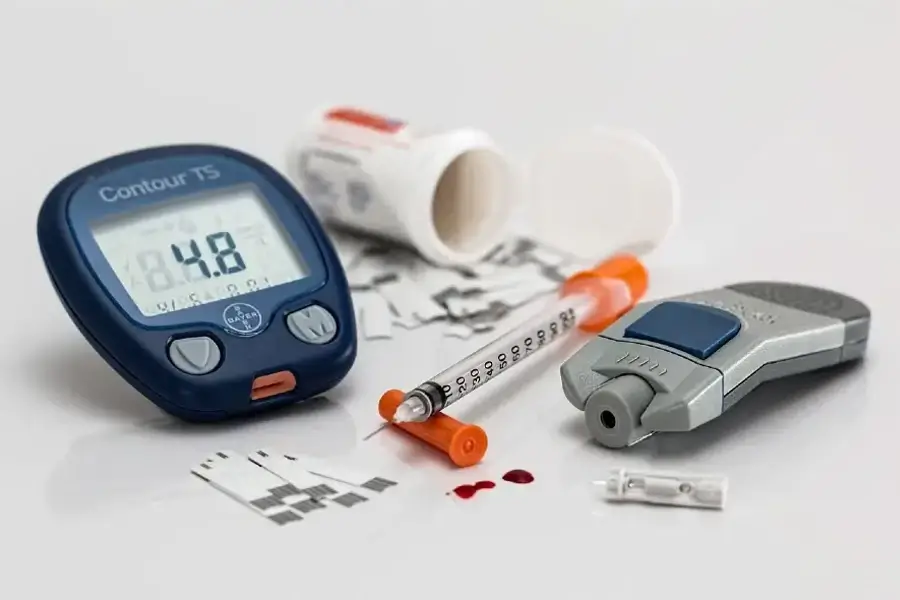Psyllium is a form of soluble fiber that has been demonstrated to reduce blood sugar levels and improve insulin sensitivity in people with diabetes. It accomplishes this by delaying carbohydrate digestion and absorbing sugar from the circulation.
Diabetes is one of the most common health concerns in today’s globe. It is a chronic disease that affects millions of individuals globally and is becoming more common. Diabetes causes excessive blood sugar levels, which can lead to a variety of health issues, such as heart disease, kidney damage, and nerve damage. As a result, controlling blood sugar levels is critical for people with diabetes.
Psyllium is a form of soluble fiber obtained from the seeds of the plant Plantago ovata. It is a common laxative and can be found in many fiber supplements. Psyllium, on the other hand, may provide health benefits for people with diabetes. Psyllium has been demonstrated in studies to help persons with type 2 diabetes lower their blood sugar levels.
Psyllium may be a valuable supplement
For 12 weeks, researchers treated persons with type 2 diabetes 10 grams of psyllium twice a day. The results revealed that the subjects’ blood sugar levels had decreased significantly. This shows that psyllium may be a valuable supplement for persons with type 2 diabetes who are having difficulty controlling their blood sugar levels.
Another study discovered that psyllium was equally effective in lowering blood sugar levels as metformin, a primary diabetes drug. This is an encouraging finding because metformin can cause stomach distress and diarrhea. In contrast, psyllium is generally well-tolerated and has few adverse effects.
Psyllium may also improve insulin sensitivity
Psyllium provides other possible health benefits for diabetics, such as decreasing blood sugar levels. It can, for example, help lower cholesterol levels, which is significant because people with diabetes are at a higher risk of heart disease. Psyllium may also improve insulin sensitivity, aiding blood glucose control.
Overall, psyllium is a promising supplement for people with diabetes. It is less expensive and has fewer adverse effects than typical diabetes drugs, making it an appealing alternative. However, before beginning any new supplement, including psyllium, consult your doctor.
Enhancing heart health in people with diabetes
Your doctor can help you decide whether psyllium is best for you and how much you should take. Psyllium can also help lower cholesterol and triglycerides, enhancing heart health in people with diabetes even more.
Most people can safely use psyllium, although it can induce adverse effects such as gas, bloating, and diarrhea. To avoid side effects, start with a low dose of psyllium and gradually increase it. When taking psyllium, it is also crucial to drink lots of fluids because it can absorb water from the stool.
If you’re thinking about taking psyllium to manage your diabetes, consult your doctor first. They can assist you in determining the appropriate dose for you and ensuring that psyllium is safe for you to use.
5 grams per day, and work your way up to 10-20 grams daily
Here are some psyllium dosage recommendations:
Begin with a low dose, such as 5 grams per day, and work your way up to 10-20 grams daily, depending on your tolerance. Drink psyllium powder immediately after mixing it with water or another liquid. To avoid adverse effects like gas and bloating, take psyllium with food. To prevent dehydration, drink plenty of fluids throughout the day. Speak with your doctor if you have any questions or concerns about taking psyllium.

Dominic E. is a passionate filmmaker navigating the exciting intersection of art and science. By day, he delves into the complexities of the human body as a full-time medical writer, meticulously translating intricate medical concepts into accessible and engaging narratives. By night, he explores the boundless realm of cinematic storytelling, crafting narratives that evoke emotion and challenge perspectives.
Film Student and Full-time Medical Writer for ContentVendor.com




